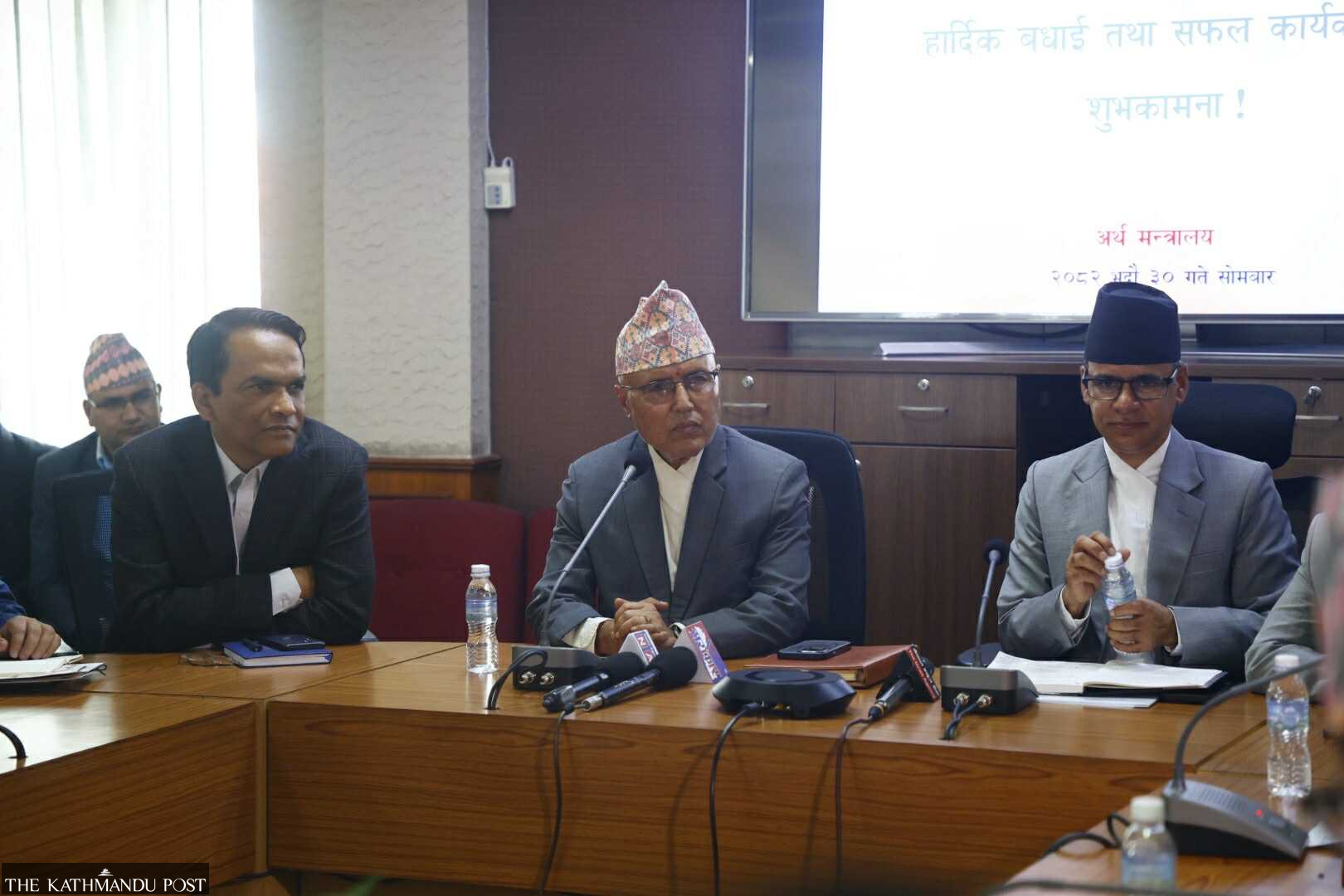National
Khanal promises to scrap fragmented projects and curb wasteful spending
Finance Minister Khanal begins tenure with promises of discipline, pledges to implement his own reform blueprint.
Yagya Banjade
Rameshore Khanal, a former finance secretary and economist, has formally assumed office as Nepal’s new finance minister in the interim government formed after the Gen Z movement.
Immediately after taking his oath of office and secrecy from President Ramchandra Paudel on Monday, he headed straight to the ministry of finance to begin work.
In his first remarks as minister, Khanal announced that the poorly prepared and fragmented projects would be scrapped, and strict measures would be introduced to control wasteful spending.
“We cannot afford to move ahead with unready projects. Every rupee must be spent responsibly,” he said, signalling a return to financial discipline.
The symbolism of his appointment has not gone unnoticed. Just five months ago, Khanal chaired the high-level economic reform commission, which submitted some concrete recommendations to rescue the struggling economy.
Now, as minister, he carries the responsibility of implementing the same proposals he submitted to the erstwhile government.
Born on 16 June 1956 in Tansen, Palpa, Khanal has long been known for his honesty, discipline, and uncompromising nature. His 31-year civil service career—from Nepal Rastra Bank to finance secretary—was marked by integrity and reform.
While in office, Khanal exposed the fake VAT billing scandal, tightened tax collection, curbed misuse of public resources, and refused to bow to political pressure.
His resignation in 2010, following disagreements with then finance minister Bharat Mohan Adhikari, cemented his image as a principled figure who would rather walk away than compromise.

Beyond his bureaucratic life, Khanal briefly served as an unpaid adviser to then prime minister Baburam Bhattarai and chaired the reform commission that paved the way for his current portfolio.
Internationally recognised for his clean image, he is expected to play a central role in restoring donor confidence and negotiating crucial support at a time when Nepal’s economy is reeling under unemployment, capital flight, and weak domestic production.
Khanal’s challenge is steep, and his time is short. The interim government has only six months to prove itself. Yet his reputation for rigour and integrity has raised public expectations that he will leave a lasting imprint.
“This is a chance to make history,” he told officials on his first day in office.
Whether he can balance political realities with technocratic resolve will determine not only his own legacy but also Nepal’s economic direction at a critical crossroads.




 12.12°C Kathmandu
12.12°C Kathmandu













